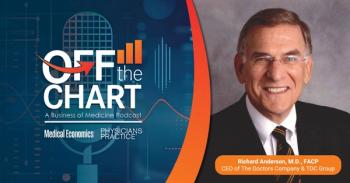
Healthcare through the Lens of Socialism, Communism, and Capitalism
Antiquated though the distinctions between socialism, communism, and capitalism may seem, healthcare would do well to keep one eye on lessons learned long ago.
Ebby Halliday, who celebrated her 102nd birthday on March 5, 2013, is a national treasure. She founded Dallas-based Ebby Halliday Realtors, which now sells more homes than any other broker in Texas, with over $5 billion in annual sales. My favorite "Ebbyism," comes from the 1950s as repeated in her 2009 biography:
"Socialism," is when you have two cows, and you share the milk with everyone else. "Communism," is when you have two cows, the government takes them, and gives you the milk. "Fascism," is where you have two cows, the government takes your cows, and sells you the milk. "Nazism," is when the government takes your cows and shoots you. "Capitalism," is where you have two cows, sell one, and buy a bull."
From, Poss, Micael: "Ebby Halliday, The First Lady of Real Estate," (Brown Books, Dallas 2009.)
As physicians, until recently, there is a good chance you have never spent much time thinking about yourselves as members of a workforce operating somewhere between socialism, communism, and capitalism, and for good reason. Until recently, America has been hugely successful as a capitalistic country, augmented by social programs to aid the elderly and the poor. In times of prosperity, pointing out the distinctions between social, economic, and political needs of the workforce seems a useful tool primarily to entertain, or to gain political advantage. If everyone is making money, everyone is happy. There was a time, however, before the government took measures to soften the harsh effects of pure capitalism, when these distinctions for the workforce were much more serious. Capitalism was enforced upon workers at the end of a length of lumber, and leftist organized labor responded in equally violent fashion. At its core, theory had its benefits and each had its counter-balance.
Modern conservative television talk show hosts have made names for themselves, largely though a cartoonish depiction of capitalism as purely "virtuous," and socialism as purely "evil." Neither is true, and both are necessary. The original rhetoric forming the foundation for much of the modern name calling, was fomented in an era when both camps had genuine needs, and both were capable of tremendous barbarity. But for much of the modern era, we have had the luxury to knock the rough edges off. It is simply a fact that Karl Marx probably would not have written works elaborating on "The Communist Manifesto," had he not lived in Dickensian London from 1848 until his death in 1883. There, he observed first-hand the disregard of the suffering of poor "street urchins."
In healthcare, the government attempted to remove the chief argument of socialists against capitalism by subsidizing medical care for the poor and elderly. This plan only worked while times were good and the government could afford it. As it now stands, government policy could be described, with a nod to Ebby Halliday: "Medicare and Medicaid," is a system in which the government takes your two cows, but in a fumbling attempt to distribute the milk, kills the cows.
Physicians are leaving the profession early, candidates are choosing alternate careers, and those who remain are in short supply and wondering how they will survive. Many physicians who write comments in response to these blogs lament that it is illegal for physicians to adopt many of the lawful techniques available to others in the workforce. Physicians cannot form unions, collectively bargain for better wages, or conspire to set rate "floors" below which they will offer their services.
At least as far as governmentally funded programs are concerned, physicians have no say at all in how much the government will reimburse, or through what hoops they must jump to win a fair ration. When physicians seek to resort to capitalism's "sell one of the cows and buy a bull," they are informed that Stark Law forbids forming these relationships. A sense of despair, reminiscent of the defunct communist bloc, pervades.
Next week, I will discuss some of the things which can be done, at a local and grass roots level, and
Newsletter
Optimize your practice with the Physicians Practice newsletter, offering management pearls, leadership tips, and business strategies tailored for practice administrators and physicians of any specialty.






